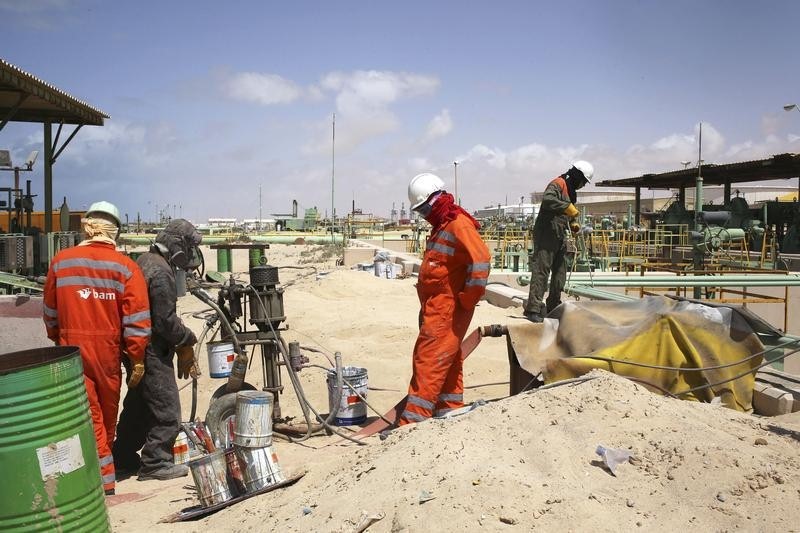By Geoffrey T. Smith
Investing.com -- Crude oil prices drifted lower in early trading in New York on Friday, as lingering fears about the strength of global demand for the rest of the year dominated a largely uneventful morning for news.
By 9:15 AM ET (1315 GMT), U.S. crude futures were down 1.8% at $42.03 a barrel, while the international benchmark Brent was down 1.7% at $44.16 a barrel. WTI was on course to end the week roughly even, while Brent was on course for a drop of nearly 2%.
Such news flow as there was on Friday tended was of mixed significance. Rising numbers of new infections in Spain and, especially, France have raised fears that Europe will be forced into a fresh wave of demand-killing economic restrictions - even though President Emmanuel Macron said on Thursday there would be no return to generalized lockdowns.
The U.N.-backed government of Libya called for a cease-fire in the country’s civil war and the resumption of oil exports, something that could, in theory, add nearly 1 million barrels a day to global supply at a time when the recovery in global demand is faltering.
However, there have been plenty of false dawns on this story in the last couple of years, and few were willing to take a fresh position on the back of the news.
Elsewhere, Saudi Arabian state oil company Aramco (SE:2222) said it will suspend a deal to build a refining and petrochemical complex in China, in line with its recent commitment to prune capital spending. The decision suggests Aramco, which has the lowest input costs of any oil producer in the world, didn’t expect the complex to turn a good enough profit given the outlook for product prices.
Chinese demand is far from completely dead: reports this week have said China has chartered enough tankers to import some 1.3 million barrels of oil a day from the U.S. in September, compensating for not meeting its commitments under the U.S.-China trade deal in the early part of the year.
If fulfilled, the orders would represent a new record for Chinese imports of U.S. oil, according to Bloomberg and Reuters. However, the bookings are provisional. Skeptics have suggested that the bookings may have been largely window-dressing ahead of U.S.-China trade talks that were abruptly postponed last weekend by President Donald Trump.
After the close, Baker Hughes will release its weekly rig count data. The number of active oil rigs in the U.S. has fallen by three-quarters since March, from over 680 to a multi-year low of 172 last week.
